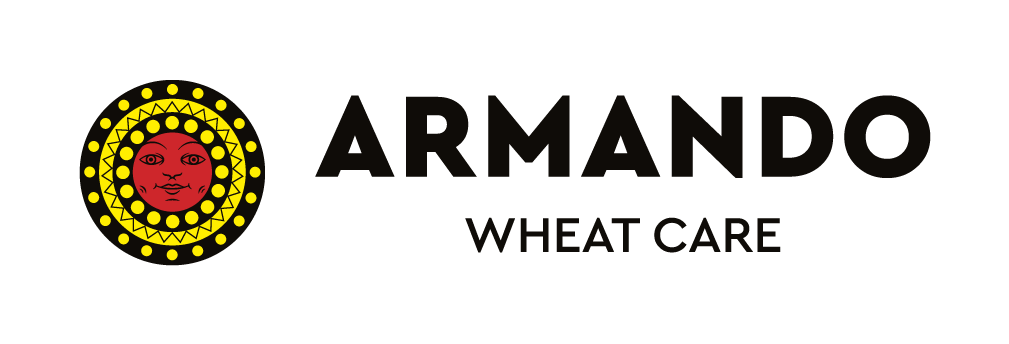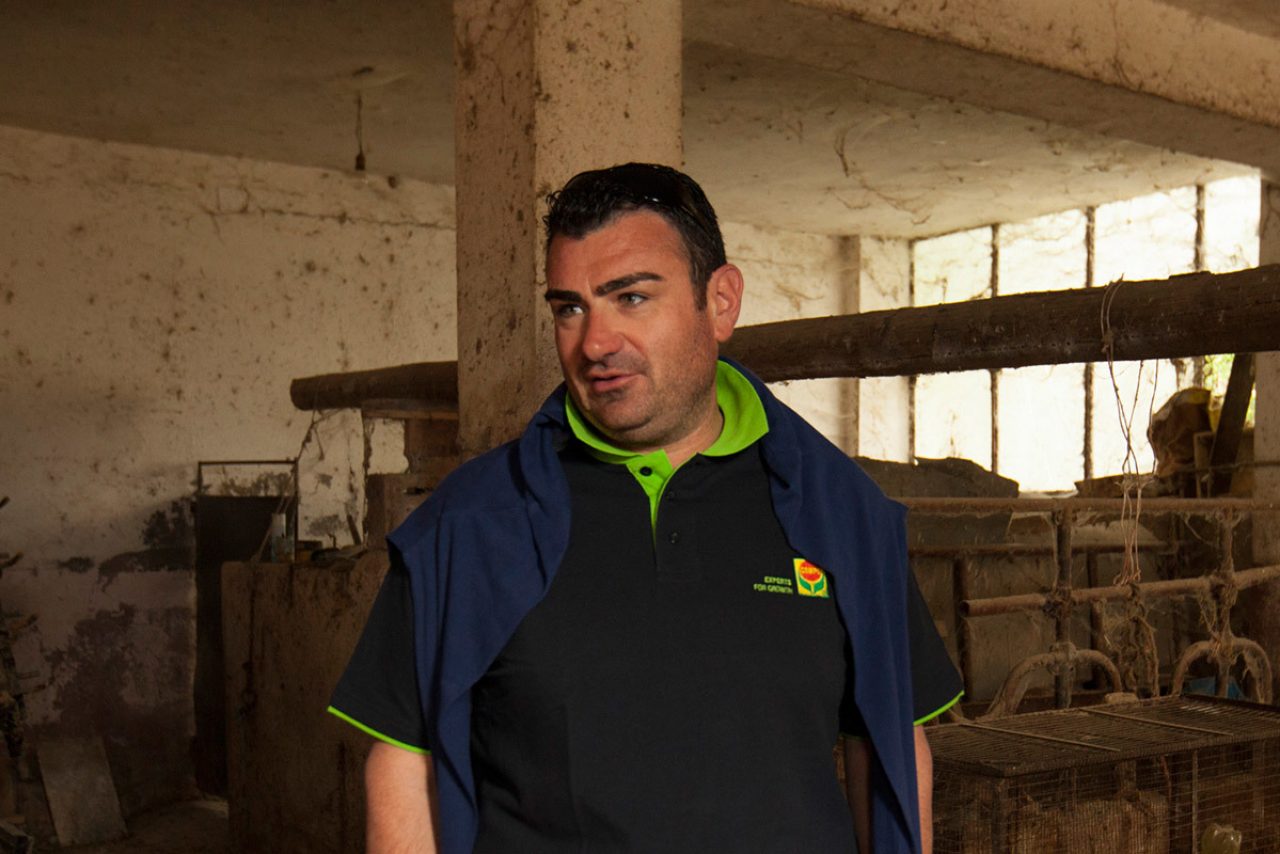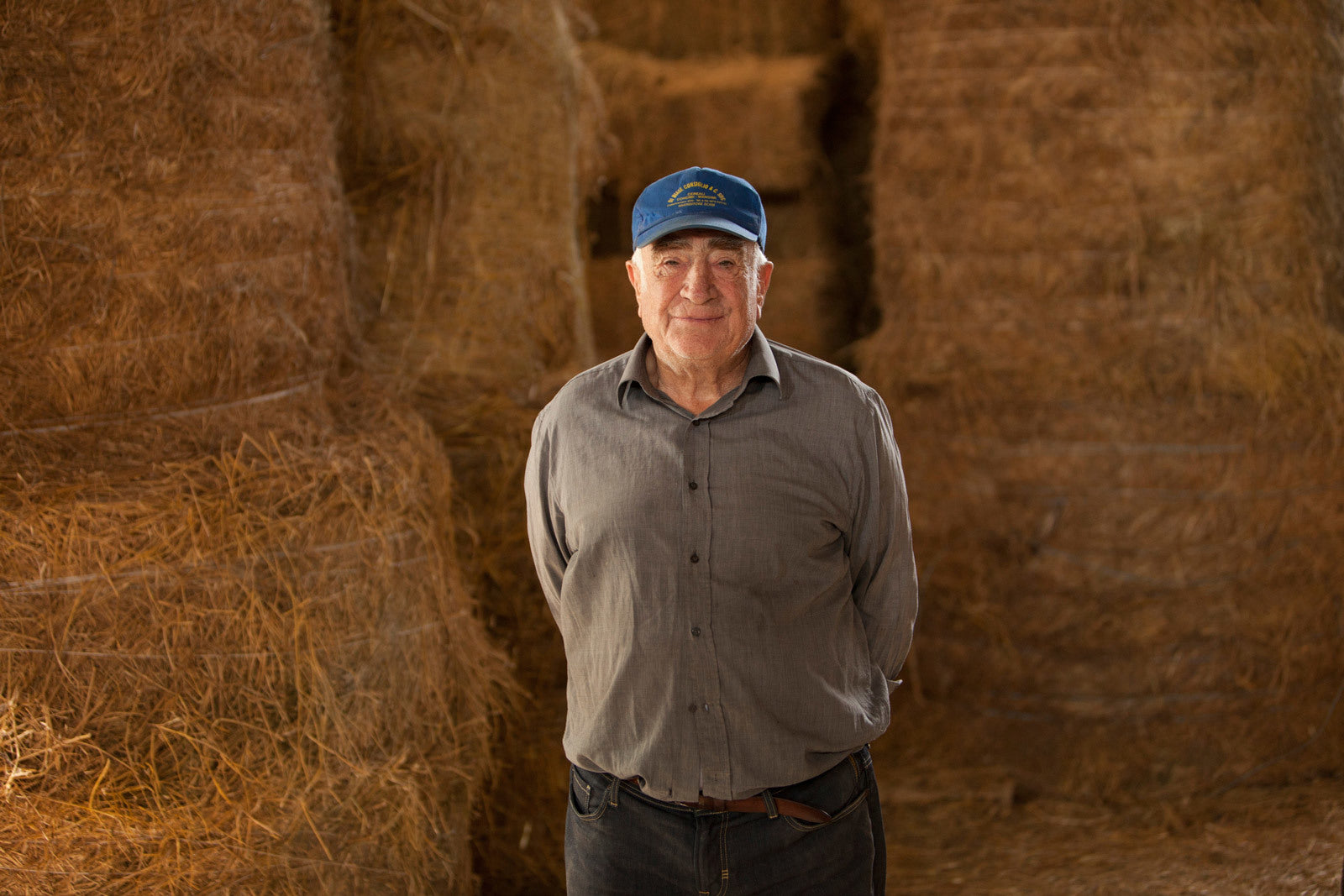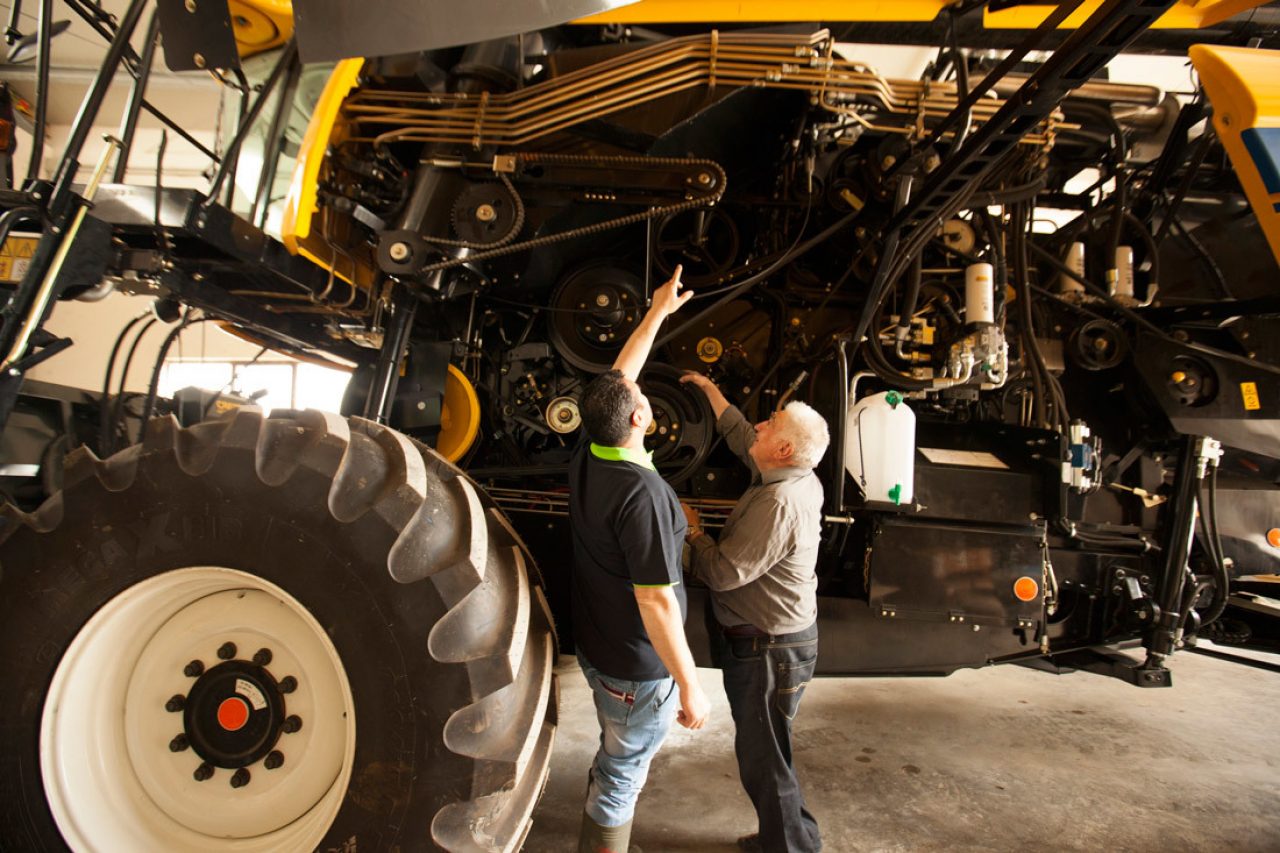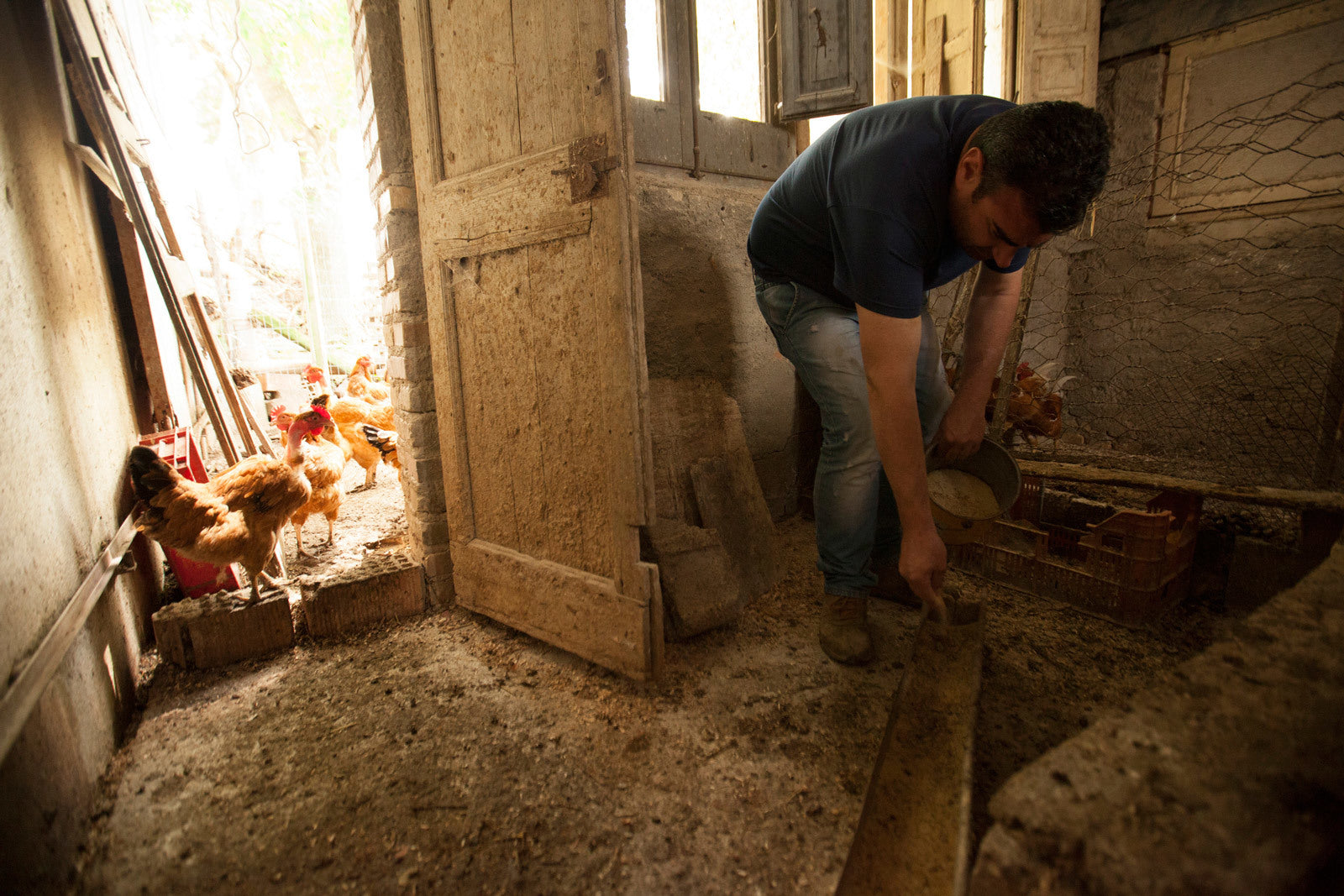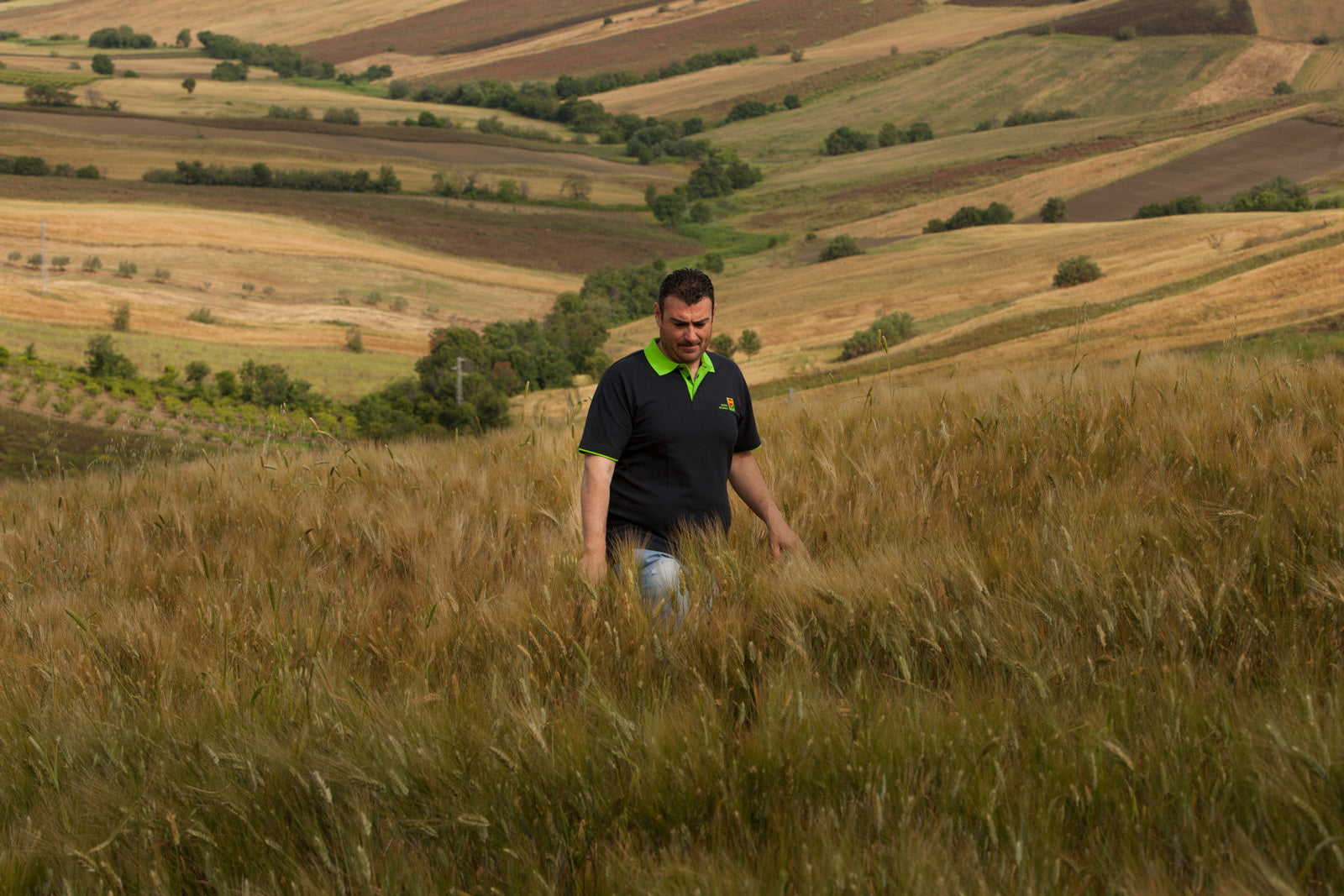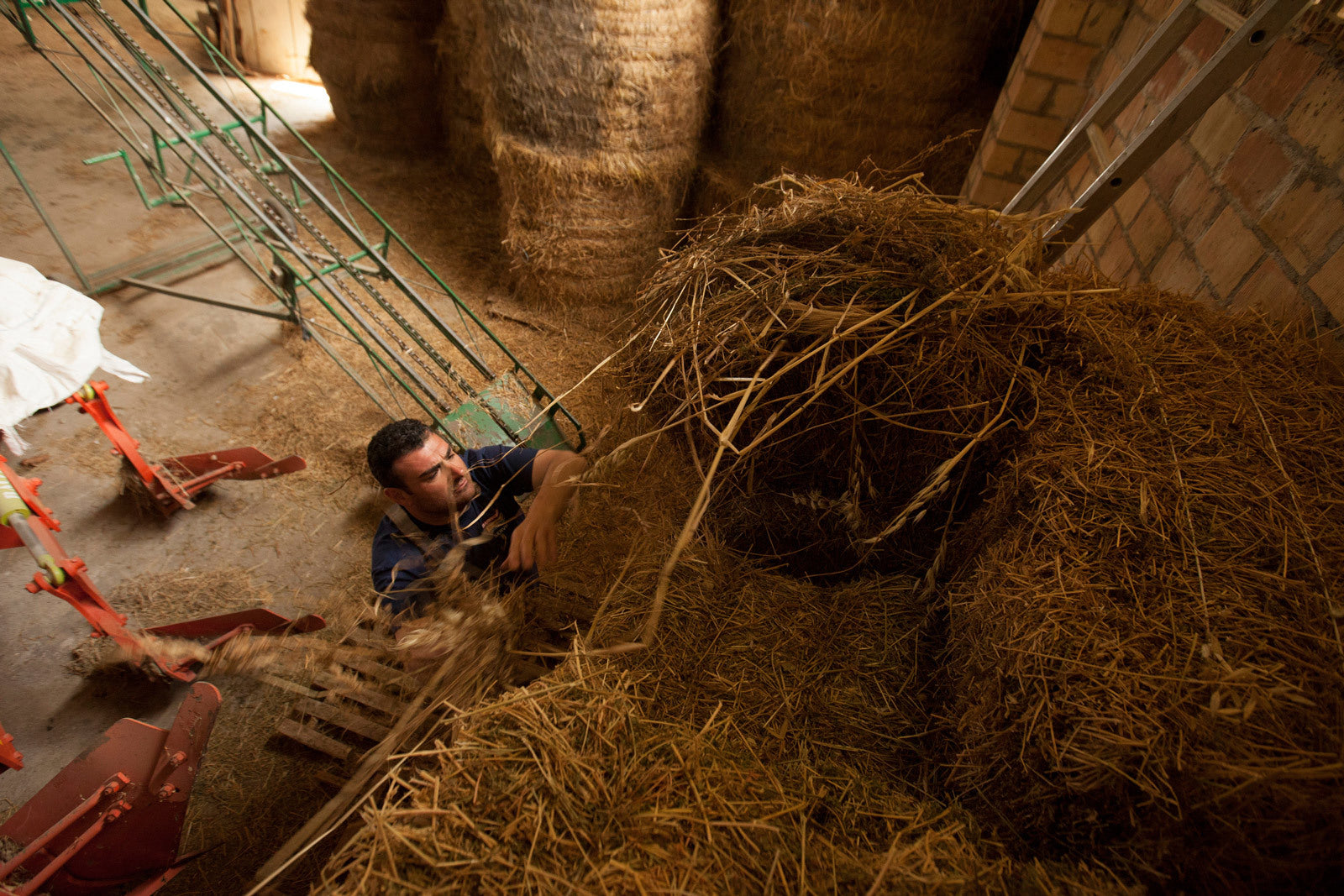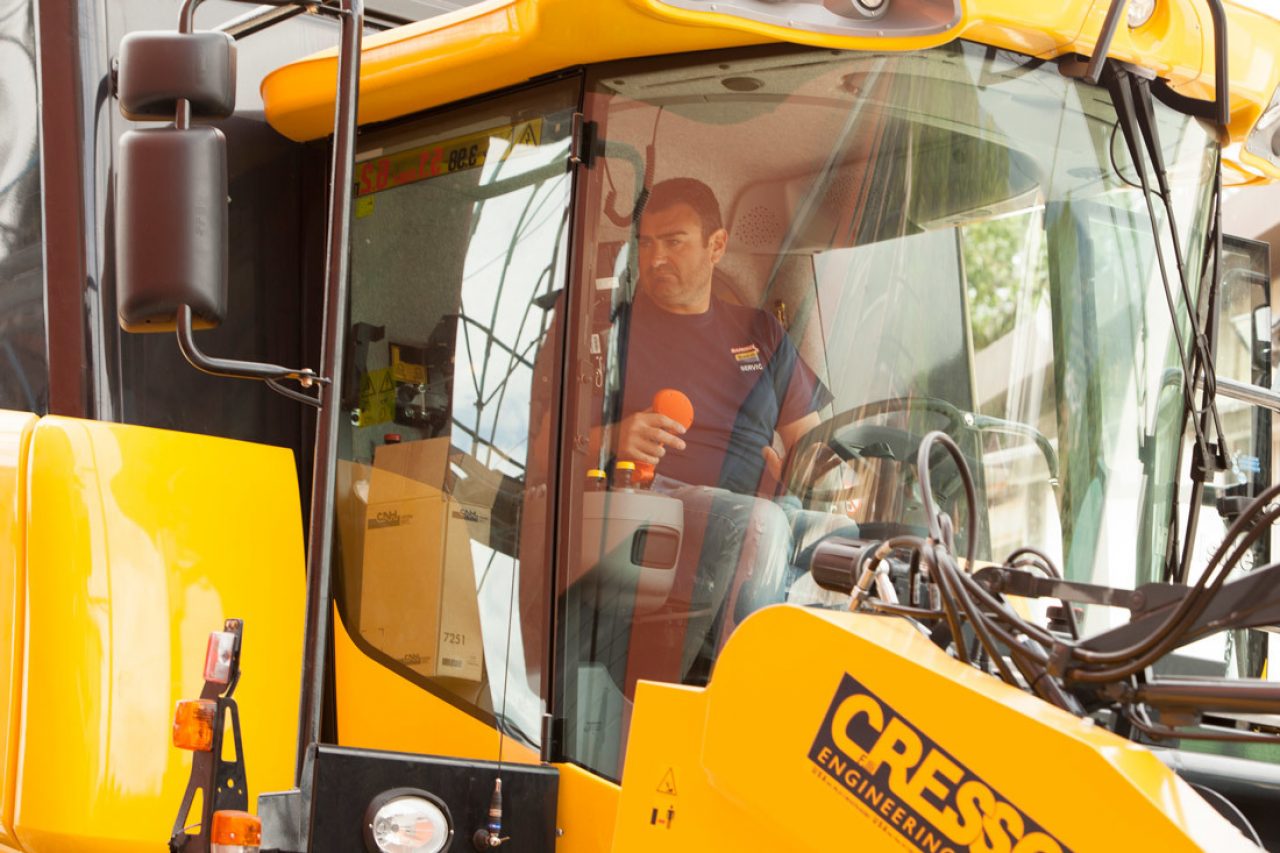Enzo's wheat, among the colors of Atessa
Enzo Suriani is a young agricultural entrepreneur of Atessa, in the province of Chieti, in that acanthotic abruzzo by D’Annunzio, a strong and kind land, rich in colors, a generous and stubborn land that gives an exceptional wheat. Enzo was born there, between those colors and those landscapes, and it is there that he learned the art of fatigue and the courage to dream from his father.

The most beautiful satisfaction is to think that my wheat remains in Italy and is eaten by the Italian people. This is why I like the Grano Armando project: it is a very different thing compared to eating a pasta produced with a wheat from abroad.
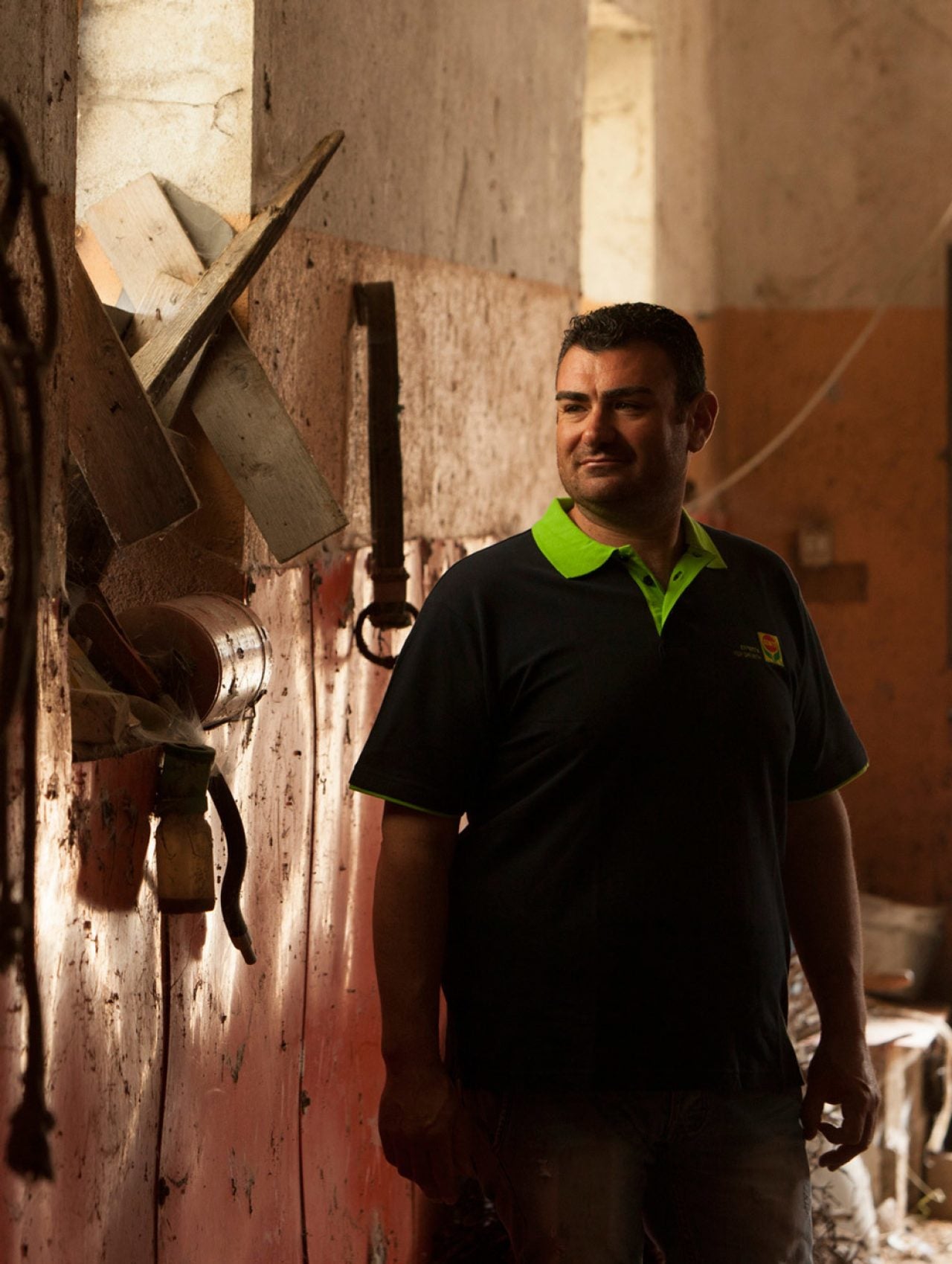
I have a worldwide value: I worked 30 years for 16 hours a day. Sometimes even 24. I was gathered milk, I got up at 5 and I went back to one, after lunch I devoted myself to work in the company. I could have entered the post office or do a state job, at the time I had the chance.
But I never liked it, that wasn't the life I wanted. Enzo is a great worker, when the harvest arrives at 5 in the morning and ends at midnight. He is a great worker but he has a great flaw: he has a wide hand. Buy, buy, buy it .. I help him with the most commercial part and the accounting, but do not ask me to get on the new harvest, all Buttoni and Buttunelli, all electronics.
Agriculture has changed and I can't be behind changes. For example, he spent a lot of money for this car ...
And Enzo confirms:
I took it 20 days ago. We are completing the assembly with options. Every day the mechanic comes and we mount the various pieces. It is a long job. May God send it to us good, we hope that the car starts soon.
It is super -technological. Large, powerful, innovative, with a retractable bar for road circulation, so we don't have the headaches to mount and disassemble. It allows you to travel and work safely.
It is a collection machine: reap the grain, separates it, collects the grains in a tank that then transfers it to the truck that leads it to the deposits.
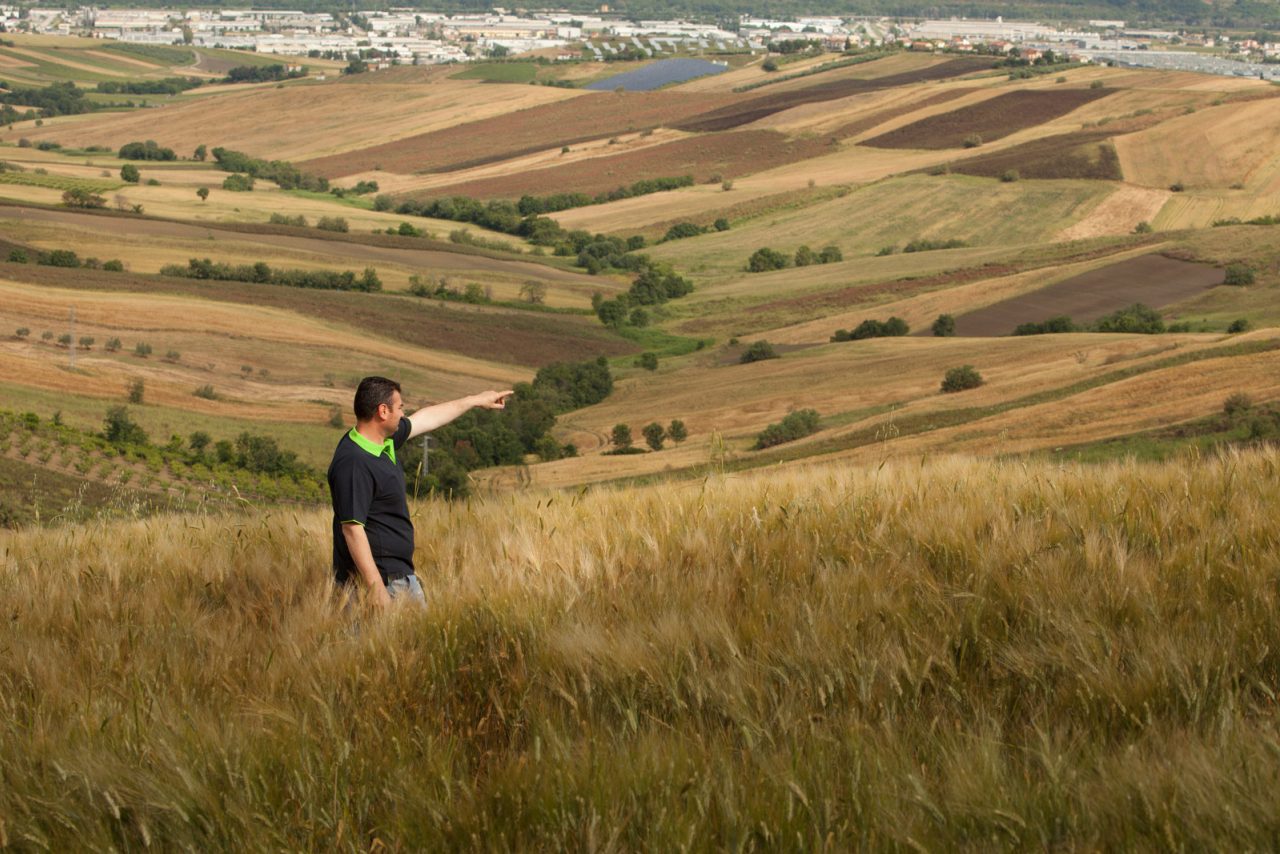
But that of Enzo is not a defect, quite the contrary. It is the courage of an entrepreneur aware of the time he lives, of a man who knows where he wants to go, aware of the journey he has to make to make his dream come true:
You have to keep up with the times. Agriculture 40 years ago is no longer applicable today. We must face the competition, we must respect the safety rules, we must produce more and more with increasingly exhausting times. My goal is to continue growing, it is to safeguard the family to guarantee it a future.
A dream is to have a company all owned, to get to a future with a good soil extension. Earned with sweat, slowly, the result of constant and patient work in the fields. Dreams are dreams, you don't know where they bring you: I don't know where mine will take me, but I hope very far ...
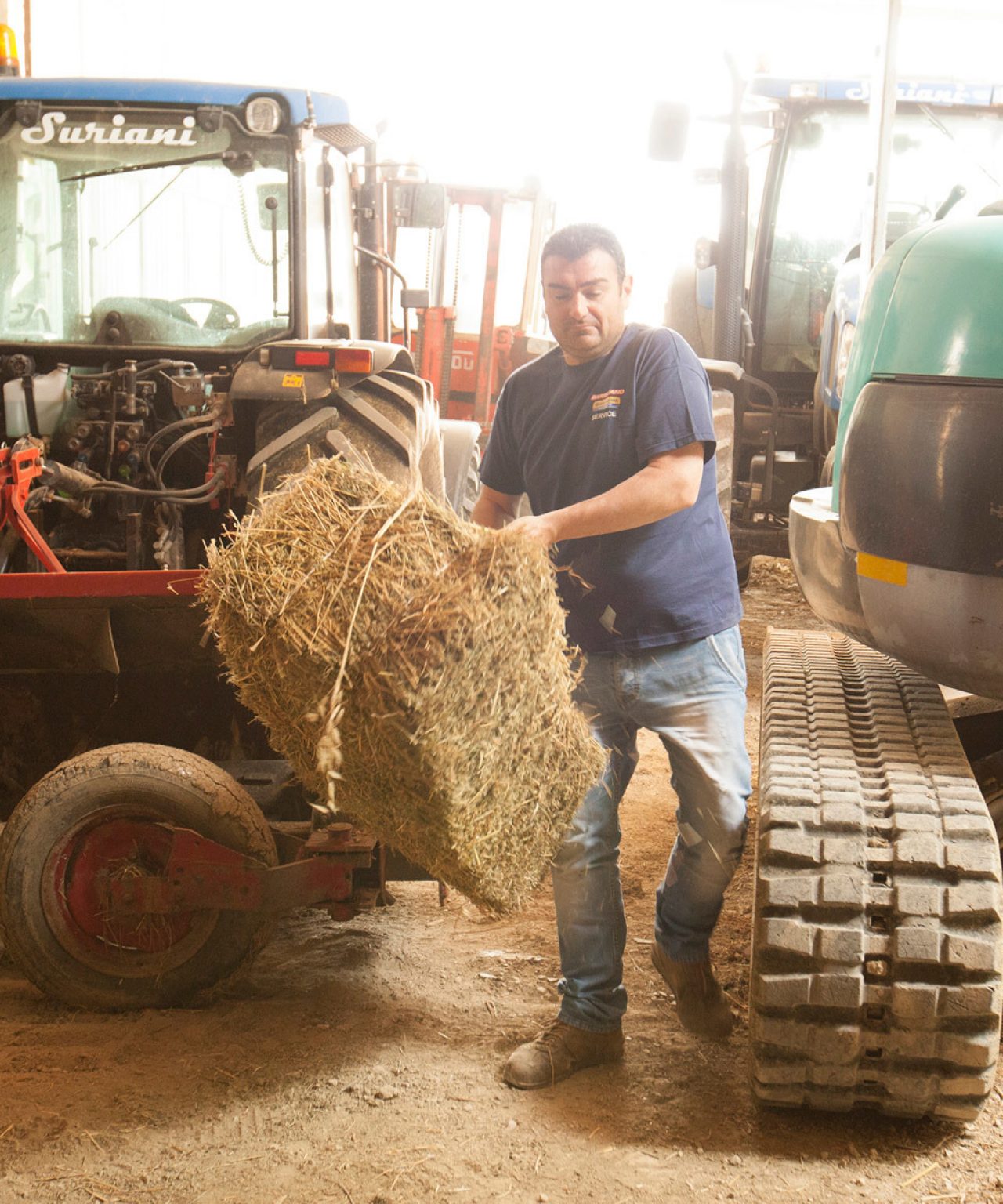
Sweet words for the ears of a father who sees in his hands the continuity of what he sowed in a life:
Working on your own guarantees control of the surrender at work, without confronting other colleagues who tend to do as little as possible. The working hours must be flexible, they cannot be marked by long rest moments. There is time to have lunch and take a break, but the times in agriculture depend on what there is to do, nature does not adapt to our rhythms but the opposite.
There are days when the work is pressing. The typical day starts at 5 in the morning. It starts by preparing the harvesting before going to the fields: refueling, fattening, cleaning and arrives in the fields around seven in the morning. You return to eleven or midnight in the evening.
Sometimes it can happen that you have to return first to solve a technical problem in the workshop, working all night to return to the fields the next morning, without resting even an hour.
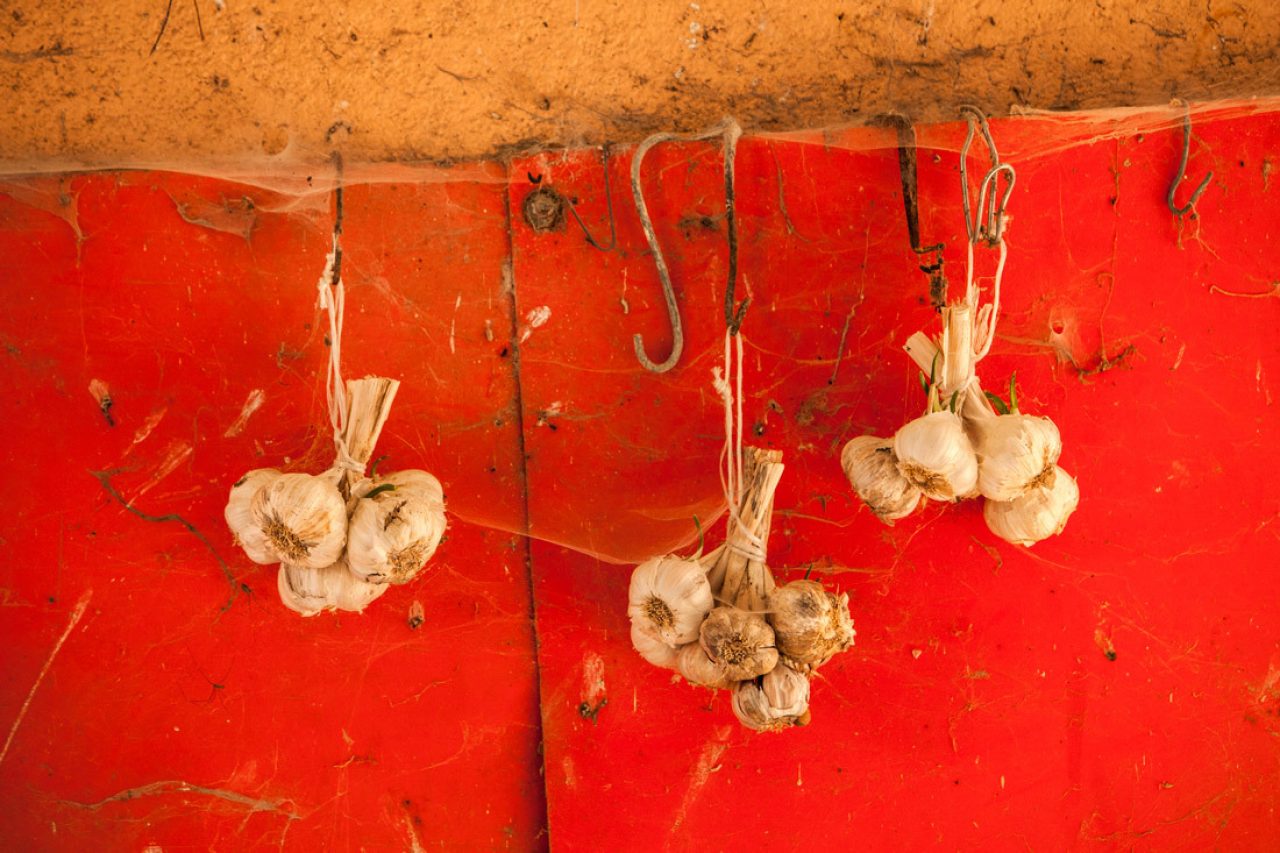
This is the life of a farmer, this is a life that is not supported if there is no passion and love. Because all that effort may not be enough, there is always the sky to deal with:
The unknowns are linked to time, you have to chase it and collect the shortest possible time. Even the climatic conditions affect a lot. This is an area suitable for durum and tender wheat (in the last 30 years we have passed mainly to the hard). The wheat is fabulous: proteins, quality, quantity and all this thanks to the type of clay soil. But this ground is a bad beast: you have to work it when he decides, you can't decide. In the dialect it is said "the pain of the foot". He is like a person: he has his needs and times. He needs to rest and be reinvigorated at the right time. Adagio must be done, carefully. It is prepared for sowing, then you sow, then you do the pelchetti to make it breathe. In short, we do the work we have to, we do it all.
Then there is the Padreno who commands 99%: if he wants he makes us collect, if he doesn't want to ...
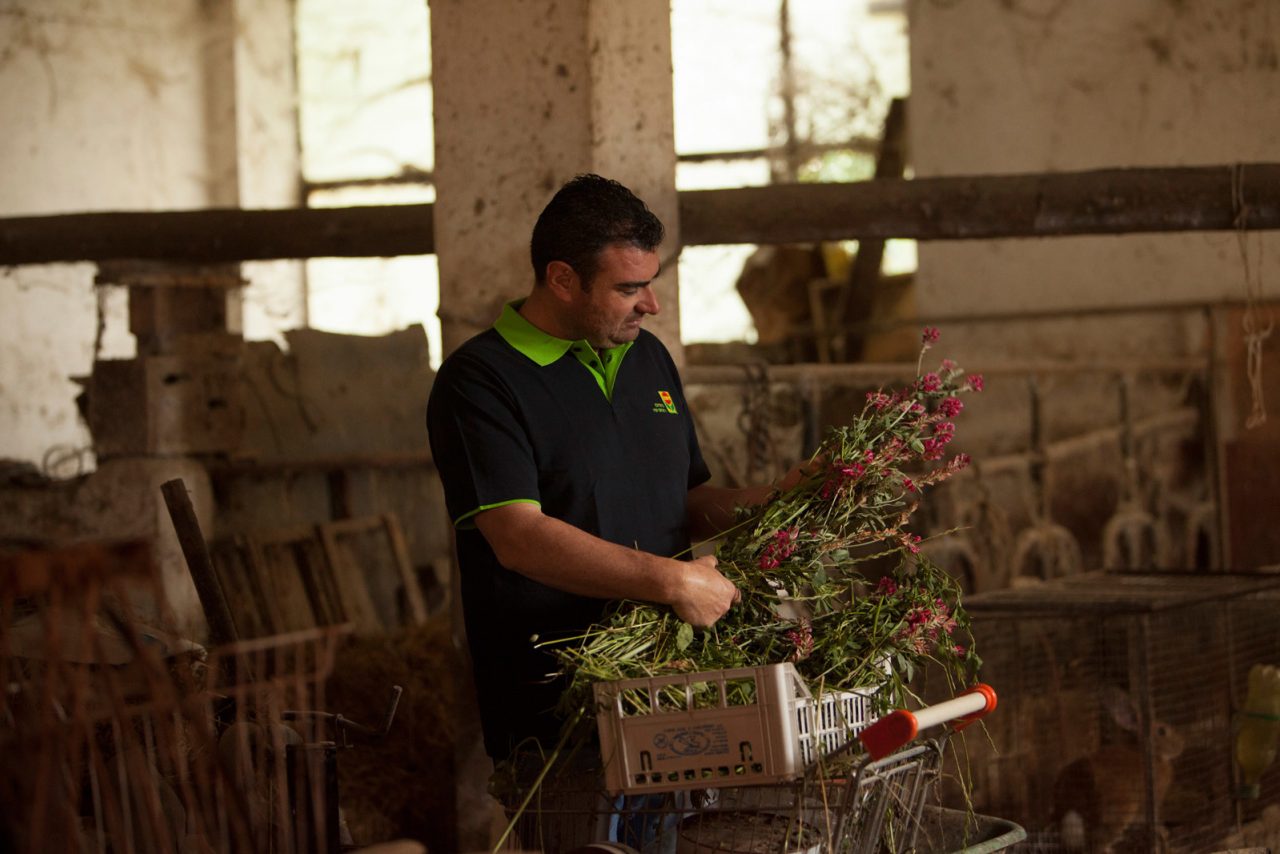
But that passion and love arise from afar, take shape and life when everything is still a game. Enzo knows it and for this he feels privileged:
The passion comes as a child, when you returned from school, the backpack was thrown into a corner and instead of thinking about the tasks you went to the fields. At six years Aravo with the tracked, I was a little unconscious.
Being farmer or you have it in the blood or you can never do it. It requires commitment and passion, if you don't have ruined them. I like to be a farmer, if only for these colors: from the arid of the plowing with the desert and black fields, until March, to the awakening of nature, up to the golden yellow of the maturation in June.
There it seems a bit that the cycle is closed, I always feel a little melancholy. But then another cycle starts again. The dream develops slowly: as a child to bring the tractor it was a game, you played to play the big one. Today is my job, the best work in the world
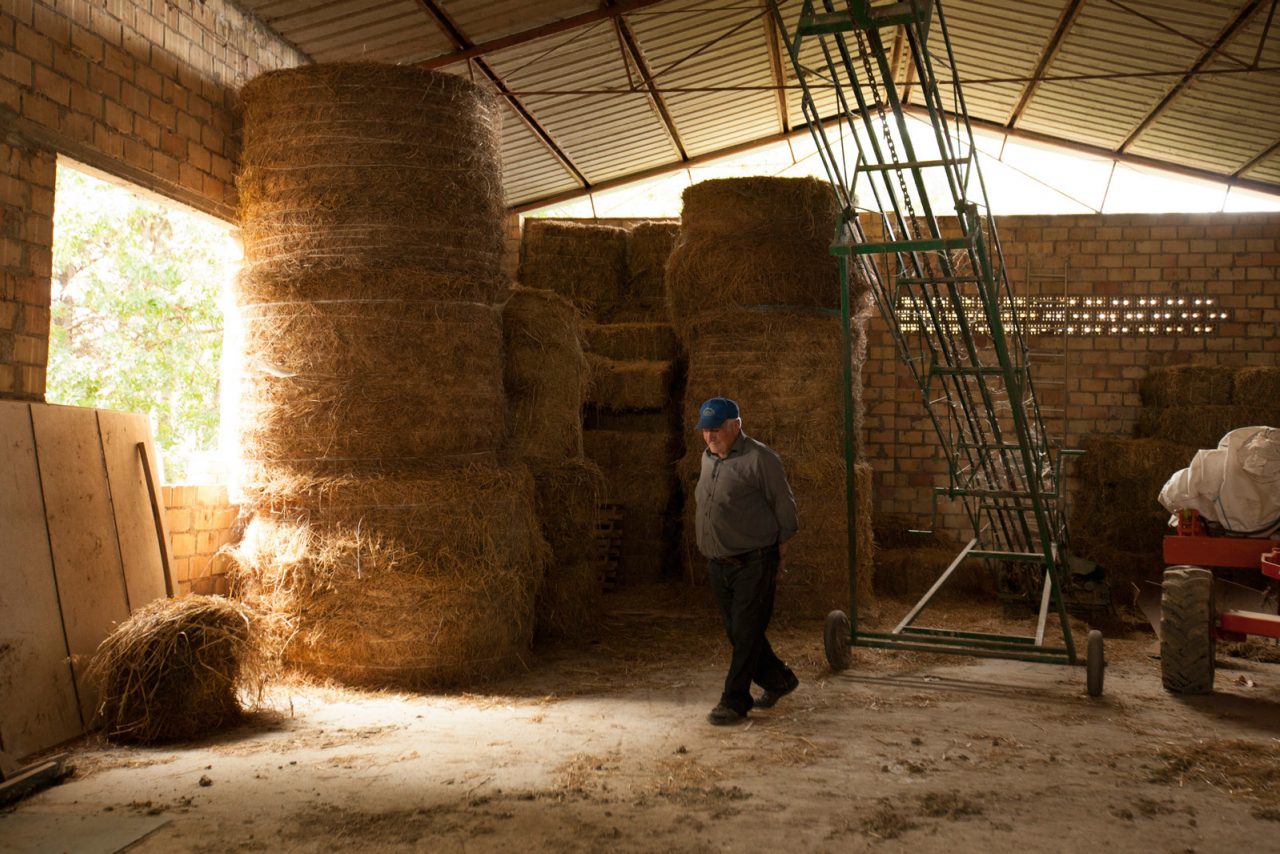
A job no longer tiring as a time but in some ways more complicated, because progress always has a price:
With the use of machines and with innovation we are able to do work with less physical effort. On the other hand, the requested investments are very high and you have to work with increasingly tight rhythms to fall within it. The wheat is not tiring but requires investment.
In August we start with plowing and therefore we have maintenance of machines, diesel, we must make these expenses proportional to the time that we dedicate to complete the operations: powerful machines and many hectares per day to be covered. After there is the preparation of the sowing bed with the underlying fertilizer, then the actual sowing, follows a good fertilization based on nitrogen, the weeding with specific products, then the fungicide, then another step of fertilizer, sometimes you have to make a second row of fungicide and the prices are rather conspicuous.
Sometimes a year is not enough to return to the investment.
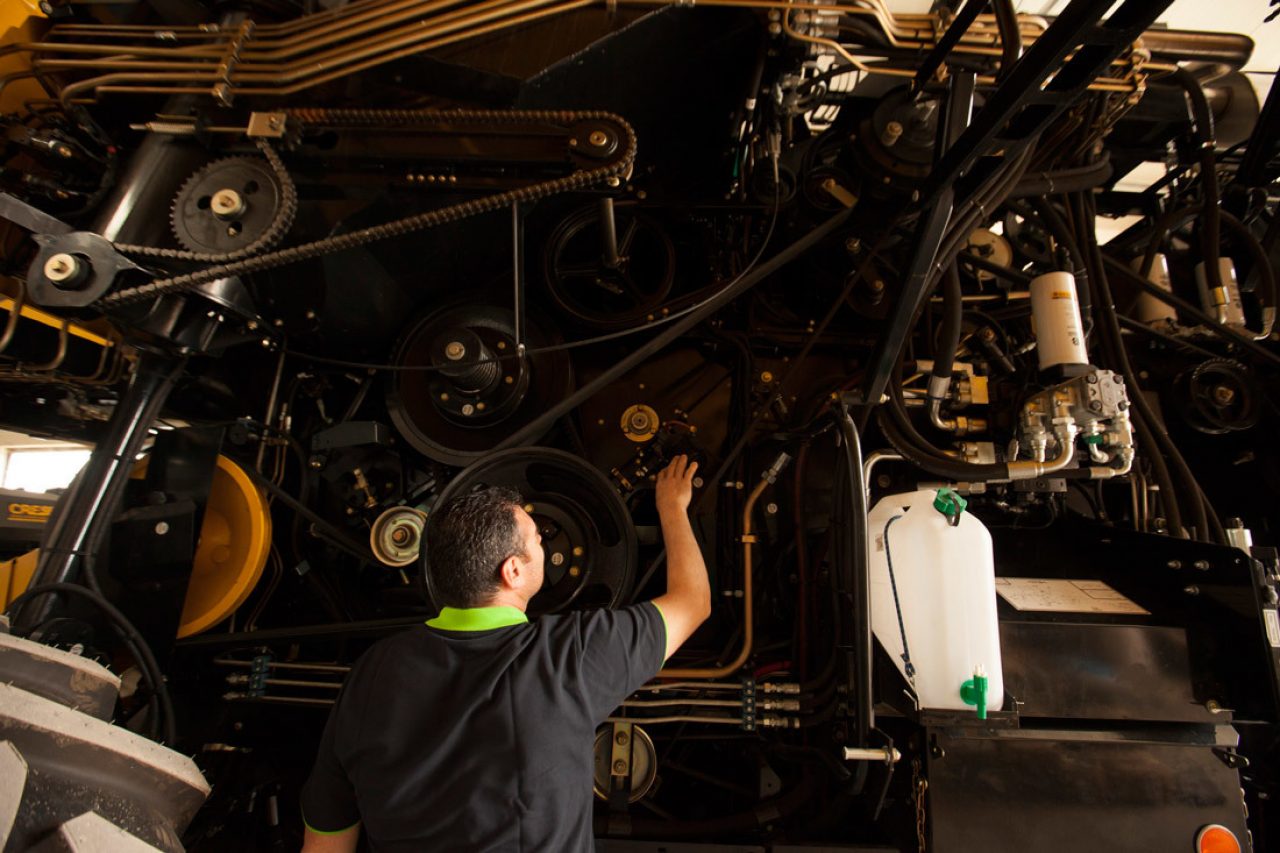
But then there is the other side of the medal, there is the poetry of the reward that for those who like Enzo lives on that passion and that love does not resolve in numbers:
The most beautiful satisfaction is to think that my wheat remains in Italy and is eaten by the Italian people. This is why I like the Grano Armando project: it is a very different thing compared to eating a pasta produced with a wheat from abroad.
When Enzo talks about the Armando pact, his eyes are illuminated, he feels part of this adventure:
Last year we produced 42 quintals per hectare, which is really a beautiful amount, I am satisfied. Considering that we have clayey and brackish soils, for me it is a great finish line. Thanking the sky I also get the maximum percentage of protein. The project I hope it will be further developed.
Having a price that depends exclusively on the market does not guarantee us to return the investment necessary to produce grain of excellent quality. With the supply chain contract, on the other hand, we have the certainty of the minimum guaranteed, which helps a lot. Of course, if we do not have the quantity, it is certainly not Armando's fault or the supply chain contract. In addition, if we reach an exceptional quality we have prizes. The future of agriculture is in the supply chain agreements.
